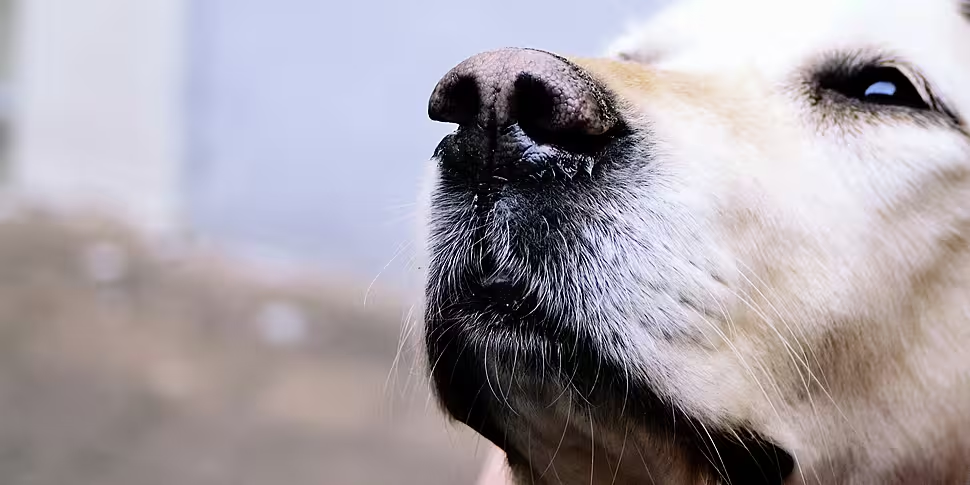Sniffing out the coronavirus could be the next addition to a CV for some skilled dogs in Australia.
Fourteen dogs have begun their training at the University of Adelaide, and at the Australian Border Force's (ABF) National Detector Dog Program Facility, in Victoria.
It is part of a joint venture into determining the feasibility of training COVID-19 detector dogs.
The results from the trials are expected to be published in early 2021, and will inform whether trials should be undertaken as the next phase.
It is thought COVID-19 detector dogs could potentially provide an "efficient, reliable and complementary" screening method to biosecurity.
Previous studies have shown dogs can detect odours, known as Volatile Organic Compounds (VOCs), that are produced by people's bodies in response to viral infections.
 A COVID-19 detector dog in training. Picture by: Australian Border Force
A COVID-19 detector dog in training. Picture by: Australian Border ForcePreliminary results show specialised working dogs can detect COVID-19 VOCs in patients - even when people are asymptomatic or in the incubation phase.
However the dogs are not being trained to directly 'sniff' COVID-infected people.
Rather they are being trained to sniff VOCs present in sweat samples that have been volunteered by people and presented to the dog in isolation through a line of carriers.
Dr Anne-Lise Chaber and Dr Susan Hazel are from the University of Adelaide’s School of Animal and Veterinary Sciences.
"Dogs could be deployed in airports and also be used to screen staff in hospitals and travellers in quarantine" Dr Chaber said.
Dr Hazel added that using a scientific approach to dog training could bolster reliability.
"The dog's nose beats the best current technology in identifying infected people.
"Using a scientific approach to dog training, we hope to increase the number of possible uses for future detector dog work".









